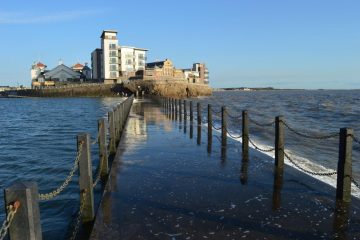Exploring the Rich Tapestry of Albania

Introduction
Albania, a small yet vibrant country located in Southeastern Europe, has slowly begun to garner attention as a fascinating travel destination. Nestled on the Adriatic Sea and bordered by Montenegro, Kosovo, North Macedonia, and Greece, Albania boasts a unique blend of historical sites, stunning landscapes, and rich cultural traditions. As more tourists seek off-the-beaten-path experiences, Albania’s increasing relevance in the global travel scene cannot be overlooked.
A Glimpse into History
Albania’s history is as diverse as its geography. Once part of the Roman Empire and later the Ottoman Empire, the country is steeped in various cultural influences. Notable historical sites such as the ancient city of Butrint, a UNESCO World Heritage site, and the well-preserved castles in Gjirokastër and Berat reflect this rich tapestry. These locations attract historians and casual visitors alike, eager to learn about Albania’s journey through the ages.
Natural Beauty and Tourism
The Albanian Riviera is famous for its unspoiled beaches, crystal-clear waters, and breathtaking mountain landscapes, making it a hotspot for nature enthusiasts and beach lovers. Towns such as Dhërmi and Jale offer stunning scenery combined with a relaxed atmosphere, setting the stage for a perfect getaway. Furthermore, the Albanian Alps provide opportunities for hiking, skiing, and other outdoor activities amidst some of Europe’s most picturesque terrains.
Cultural Heritage
Albania’s culture is a reflection of its varied history and a mix of Mediterranean and Balkan influences. Traditional music, dance, and cuisine play a significant role in Albanian life. Festivals held throughout the year, such as the Albanian National Day on November 28, celebrate the country’s heritage and foster a sense of national pride. Albanian dishes like Byrek and Tavë Kosi showcase local ingredients and culinary traditions that attract food lovers.
Challenges and Opportunities
While Albania is emerging as a travel destination, it faces challenges such as inadequate infrastructure and environmental concerns. However, initiatives to improve road networks and promote sustainable tourism practices indicate a bright future. With backing from the European Union and increasing investment in tourism development, Albania is poised to grow as a key player in the Balkan tourism market.
Conclusion
With its rich history, stunning natural beauty, and evolving cultural landscape, Albania represents a unique opportunity for travellers seeking adventure and authenticity. As awareness of this hidden gem increases, it is likely that Albania will continue to rise in popularity, drawing visitors eager to experience all that it has to offer. For those looking to explore the uncharted territories of Europe, a journey to Albania is an invitation to discover a land of rich experiences, warm hospitality, and extraordinary landscapes.









